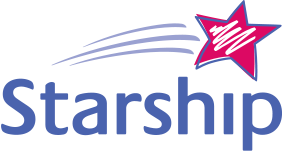Car safety: 10 - 14 years
How big a problem is it?
Land transport crashes are a major cause of both fatal and non-fatal injuries among children. Motor vehicle traffic crashes (MVTCs) were the second-leading cause of fatal injuries between 2013-2017.
Who does it affect?
Deaths from Motor Vehicle Traffic Crashes (MVTCs) affect all ages equally, but older children (aged 10-14) are more likely to sustain non-fatal injuries. Around two children aged 10 - 14 years are admitted to hospital for MVTC injuries per week. Māori children were also disproportionately likely to be injured in MVTCs, especially as vehicle occupants.
Top Tips
|
First Aid
If your child has been in a MVTC they may have a bone fracture or a serious head injury and be in pain. If that's happened or for any of the following reasons, call 111 immediately. Do this if your child:
is, or has been, unconscious (can’t be woken up)
is being sick or seems sleepy
has trouble breathing
bleeding and you can’t stop the bleeding
there is bleeding from an ear.
There are also some things you can do straight away:
Fractures First Aid
Keep the injured arm or leg still. If you have someone who knows how to, use a splint to keep it still. You can support the injured arm or leg with a pillow or sling. Raise the arm or leg higher than the heart to help reduce swelling. Your child will need pain relief. If your child does not need an ambulance take them to the nearest hospital Emergency Department.
Brain injury/loss of consciousness First Aid
Follow DRS ABCD for start CPR
D Dangers? Check for any dangers to yourself such as electricity or traffic.
R Responsive? Check responsiveness by calling loudly and shaking the child's arm.
S Send for help. Dial 111 and confirm an ambulance is on its way. Use the appropriate emergency number in other countries.
A Airway. Open the airway by moving the head into a neutral position and lifting the chin. Do not tilt the head back too far.
B Breathing. Look and feel for movement of the lower chest and stomach area. Listen and feel for air coming from the nose or mouth.
C CPR. If the child is not breathing, start CPR - 30 compressions to 2 breaths. Put the child on a firm surface. Place 2 fingers of one hand (for a baby) or the heel of one hand (for a child) in the centre of the chest just below the nipples. Push down hard and fast 30 times in about 15 seconds (push down one-third of chest depth).
Once you have completed 30 compressions (pushes) on the chest, breathe into the baby's mouth 2 times. Seal your lips around the baby's mouth and nose. For a child over 1, you may need to breathe into their mouth and pinch their nose closed. Gently puff into the child until you see their chest rise.
Continue with the cycle of 30 chest compressions and 2 breaths until the ambulance arrives.
D Defibrillator. Attach defibrillator as soon as it is available and follow prompts.
The CPR advice is from the KidsHealth website and a page containing the Basic Life Support Flow Chart. The Basic Life Support Flow Chart is developed by the New Zealand Resuscitation Council and Australian Resuscitation Council. For more information see www.nrc.org.nz
Link to Safekids' Resources
Child Passenger Safety Resources
Links to other organisations resources
Find a Car Restraint Technician
New Zealand Child Car Restraint Regulations
New Zealand Transport Agency Child Restraint Factsheet
